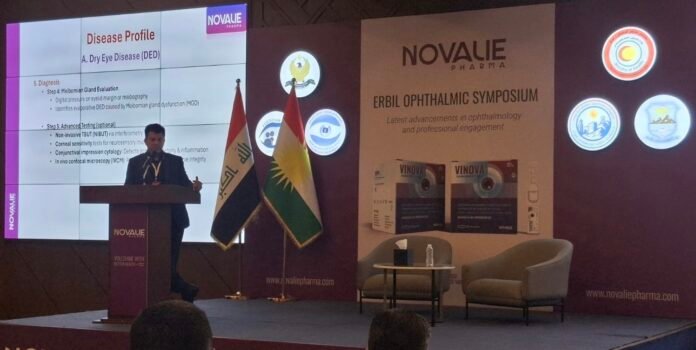Medical professionals across Iraq continue to push for improved healthcare. In a major step forward, nearly 200 Iraqi eye experts came together in Erbil to attend a national ophthalmology conference. Specialists from all regions gathered to share knowledge, explore medical advancements, and strengthen cooperation within the field of eye care.
The event placed strong emphasis on updating practitioners about the most effective treatments for widespread eye conditions. Organizers designed the sessions to support Iraqi doctors with the latest scientific research. Doctors discussed modern surgical approaches, prevention techniques, and new technology used to diagnose and treat visual disorders.
Dr. Bjar Musa, the lead organizer, explained that the goal focuses on enhancing care for Iraqi citizens. He highlighted the need to connect professionals and encourage collaboration between institutions. The event not only raised awareness but also encouraged innovation and problem-solving across different areas of ophthalmology.
Throughout the conference, experts paid special attention to three common eye health problems. First, they explored cataracts. These cloud the lens of the eye and often require surgical removal. Doctors discussed the latest techniques to improve outcomes and speed recovery. Many Iraqi patients face delays in care, making these advances crucial for the healthcare system.
Second, the speakers examined diabetic retinopathy, a complication of diabetes that damages the retina. With rising diabetes rates in Iraq, this condition threatens the vision of thousands. Conference participants exchanged insights on early detection and shared strategies for controlling blood sugar to prevent long-term damage.
Finally, doctors addressed seasonal eye allergies. These frequently occur in Iraq’s hot and dusty climate. Specialists highlighted the importance of consistent care and public education. They also noted that many Iraqis lack awareness of treatment options, which often leads to worsening symptoms and complications.
In addition, the event helped younger doctors build connections with experienced professionals. Medical students and new graduates attended specialized sessions to learn from senior practitioners. These interactions promoted mentorship and raised the overall standard of care.
The conference in Erbil demonstrated Iraq’s growing focus on healthcare excellence. Participants agreed that regular events like this improve the system’s ability to respond to emerging medical challenges. By working together, eye care professionals can reduce preventable blindness and improve quality of life.

